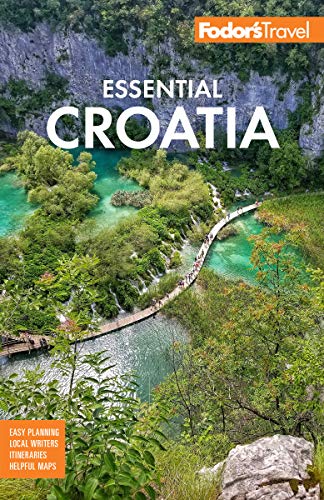Health
Water is safe to drink throughout Croatia. EU countries have reciprocal health-care agreements with Croatia, entitling those nationals to medical consultation for a basic minimum fee. Citizens from outside the EU have to pay in accordance with listed prices. Most doctors speak English.
COVID-19
The emergence of COVID-19 brought all travel to a virtual standstill in the first half of 2020, and interruptions to travel have continued through 2020 and into 2021. Although the illness is mild in most people, some experience severe and even life-threatening complications. Once travel started up again, albeit slowly and cautiously, travelers were asked to be particularly careful about hygiene and to avoid any unnecessary travel, especially if they are sick.
Older adults, especially those over 65, have a greater chance of having severe complications from COVID-19. The same is true for people with weaker immune systems or those living with some types of medical conditions, including diabetes, asthma, heart disease, cancer, HIV/AIDS, kidney disease, and liver disease. Starting two weeks before a trip, anyone planning to travel should be on the lookout for some of the following symptoms: cough, fever, chills, trouble breathing, muscle pain, sore throat, new loss of smell or taste. If you experience any of these symptoms, you should not travel at all.
And to protect yourself during travel, do your best to avoid contact with people showing symptoms. Wash your hands often with soap and water. Limit your time in public places, and, when you are out and about, wear a face mask that covers your nose and mouth. Indeed, a mask may be required in some places, such as on an airplane or in a confined space like a theater, where you share the space with a lot of people.
You may wish to bring extra supplies, such as disenfecting wipes, hand sanitizer (12-ounce bottles were allowed in carry-on luggage at this writing), and a first-aid kit with a thermometer.
Over-the-Counter Remedies
In Croatia, over-the-counter medications are sold in pharmacies, which are open until 6 or 7 pm on weekdays and 1 or 2 pm on Saturday. In each town there is usually a 24-hour pharmacy for emergencies. Most European pharmacists speak a word or two of English, but you're better off asking for a remedy by its medical name (e.g., ibuprofen) than its brand name (e.g., Advil). Pharmacies don't have a lot of open shelf space for goods, so you will have to ask the pharmacist for what you want. In both countries paracetemol (and its brand name Panadol) is more recognized than acetaminophen (and the brand name Tylenol) for basic pain relief. Claritin, the allergy relief medication, is sold in Croatia by that name at the pharmacy. Many products that Americans would normally find in their local drugstore—cough syrup, diaper cream, cough drops, muscle cream, and vitamins, to name a few—must be bought in the pharmacy in Croatia. While this system is inconvenient, if you get an allergy attack in the middle of the night, the upside is that prices are kept down by the government, so many things will be a fraction of the cost at home. The word for pharmacy in Croatia is ljekarna, but stick to the equally understood apoteka.




